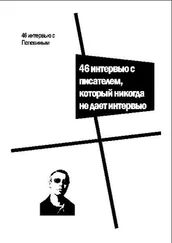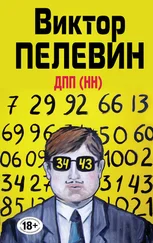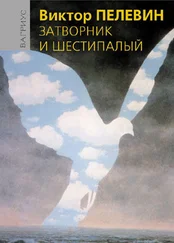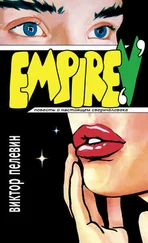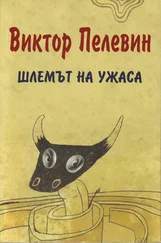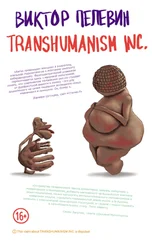Виктор Пелевин - Buddha's Little Finger
Здесь есть возможность читать онлайн «Виктор Пелевин - Buddha's Little Finger» весь текст электронной книги совершенно бесплатно (целиком полную версию без сокращений). В некоторых случаях можно слушать аудио, скачать через торрент в формате fb2 и присутствует краткое содержание. Жанр: Современная проза, на английском языке. Описание произведения, (предисловие) а так же отзывы посетителей доступны на портале библиотеки ЛибКат.
- Название:Buddha's Little Finger
- Автор:
- Жанр:
- Год:неизвестен
- ISBN:нет данных
- Рейтинг книги:5 / 5. Голосов: 1
-
Избранное:Добавить в избранное
- Отзывы:
-
Ваша оценка:
- 100
- 1
- 2
- 3
- 4
- 5
Buddha's Little Finger: краткое содержание, описание и аннотация
Предлагаем к чтению аннотацию, описание, краткое содержание или предисловие (зависит от того, что написал сам автор книги «Buddha's Little Finger»). Если вы не нашли необходимую информацию о книге — напишите в комментариях, мы постараемся отыскать её.
Buddha's Little Finger — читать онлайн бесплатно полную книгу (весь текст) целиком
Ниже представлен текст книги, разбитый по страницам. Система сохранения места последней прочитанной страницы, позволяет с удобством читать онлайн бесплатно книгу «Buddha's Little Finger», без необходимости каждый раз заново искать на чём Вы остановились. Поставьте закладку, и сможете в любой момент перейти на страницу, на которой закончили чтение.
Интервал:
Закладка:
These, more or less, were the thoughts that filled my head as I went down the stairs and out into the yard. Someone said that Kotovsky had asked me to come into the staff barn, and I set off in that direction immediately. Two soldiers in black uniforms were standing on guard at the entrance. As I walked past, they stood to attention and saluted. From the look of concentration on their faces, I realized that they knew me well, but unfortunately the concussion had completely erased their names from my memory.
Kotovsky was sitting on the table wearing a tightly buttoned brown service jacket. He was alone in the room. I noted the deathly pallor of his face, as though a thick layer of powder had been applied to it. Standing beside him on the table was a transparent cylinder inside which clouds of some molten white substance were clumped together. It was a lamp made out of a spirit-stove and a long glass retort, inside which lumps of wax floated in tinted glycerine: five years be fore they had been the height of fashion in St Petersburg.
Kotovsky held out his hand. I noticed that his fingers were trembling slightly.
‘Since early this morning,’ he said, raising his cool, limpid eyes to my face, ‘for some reason I have been thinking about what awaits us beyond the grave.’
‘Then you believe that something does await us?’ I asked.
‘Perhaps I didn’t express myself very well,’ said Kotovsky. Let us just say I have been pondering on death and immortality.’
‘What could have brought on such a mood?’
‘It has never really left me since a certain memorable day in Odessa,’ Kotovsky answered with a cold smile. ‘But that is not important.’
He folded his arms on his chest and pointed to the lamp with his chin.
‘Look at that wax,’ he said. ‘Watch carefully what happens to it. As the spirit-stove heats up, it rises upwards in drops that assume the most fantastic forms. As it rises, it cools. The higher the pieces rise, the more slowly they move. And finally, at some point they stop and begin to fall back towards the very place from which they have just risen, often without ever reaching the surface.’
‘There’s a tragedy straight out of Plato in it,’ I said thoughtfully.
‘Possibly. But that is not what I have in mind. Imagine that the solidified drops rising upwards in the lamp are endowed with consciousness. In this case they will immediately encounter the problem of self-identification.’
‘Undoubtedly.’
‘Now this is where it becomes really interesting. If one of those lumps of wax believes that it is the form which it has assumed, then it is mortal, because that form will be destroyed -but if it understands that it is wax, then what can happen to it?’
‘Nothing,’ I replied.
‘Precisely.’ said Kotovsky. ‘In that case it is immortal. But the tricky part is, it’s very difficult for the wax to understand that it is wax - it’s almost impossible to grasp one’s own primordial nature. How can you notice what has been there right in front of you since the beginning of time? And so the only thing that the wax does notice is its temporary lorm. But the form is arbitrary every time it arises, influenced by thousands and thousands of different circumstances.’
‘A quite magnificent allegory. But what conclusion can we draw from it?’ I asked, recalling our conversation of the previous evening concerning the fate of Russia, and the facility with which he had directed the subject towards cocaine. It might well prove to be that he was simply trying to obtain the remainder of the powder and was gradually leading the conversation around to that topic.
‘The conclusion is that the only route to immortality for a drop of wax is to stop thinking of itself as a drop and to realize that it is wax. But since our drop is capable only of noticing its own form, all its brief life it prays to the Wax God to preserve this form, although, if one thinks about it, this form possesses absolutely no inherent relation to the wax. Any drop of wax possesses exactly the same properties as its entire volume. Do you understand me? A drop of the great ocean of being is the entire ocean, contracted for a moment to the scope of that drop. But now, tell me how to explain this to these drops of wax that fear most of all for their own fleeting form? How can we instil this thought into them? For it is thoughts that drive them towards salvation or destruction, because in their essence both salvation and destruction are also thoughts. I believe it is the Upanishads that tell us that mind is a horse harnessed to the carriage of the body…’
At this point he clicked his fingers, as though he had been struck by an unexpected idea, and again raised his cold gaze to my face:
‘By the way, while we are on the subject of carriages and horses, don’t you think that, after all, half a tin of cocaine for a pair of Oryol trotters is just a bit…’
A sudden thunderous crash burst upon my ears, startling me so badly that I staggered backwards. The lamp standing beside Kotovsky had exploded, splattering a cascade of glycerine across the table and over the map which was spread on it. Kotovsky leapt off the table and a revolver appeared in his hand like magic.
Chapaev was standing in the doorway with his nickel-plated Mauser in his hand; he was wearing a grey jacket with a high collar, a shoulder-belt, an astrakhan hat with a slanting watered-silk ribbon and black riding breeches trimmed with leather and decorated with a triple stripe. A silver pentagram gleamed on his chest - I remembered that he had called it ‘The Order of the October Star’ - and a small pair of black binoculars hung beside it.
‘That was smart talking there, Grisha, about the drop of wax.’ he said in a thin, hoarse tenor, ‘but what’re you going to say now? Where’s your great ocean of beans now?’
Kotovsky glanced in perplexity at the spot where the lamp had been standing only a moment before. A huge greasy spot had spread across the map. Thankfully, the wick of the lamp had been extinguished by the explosion, otherwise the room would already have been ablaze.
‘The form, the wax - who created it all?’ Chapaev asked menacingly. ‘Answer me!’
‘Mind.’ replied Kotovsky.
‘Where is it? Show me.’
‘Mind is the lamp.’ said Kotovsky. ‘I mean, it was.’
‘If mind is the lamp, then where do you go to now it’s broken?’
‘Then what is mind?’ Kotovsky asked in confusion.
Chapaev fired another shot, and the bullet transformed the ink-well standing on the table into a cloud of blue spray.
1 felt a strange momentary dizziness.
Two bright red blotches had appeared on Kotovsky’s pallid cheeks.
‘Yes,’ he said, ‘now I understand. You’ve taught me a lesson, Vasily Ivanovich. A serious lesson.’
‘Ah, Grisha.’ Chapaev said sadly, ‘what’s wrong with you? You know yourself you can’t afford to make any mistakes now - you just can’t. Because where you’re going there won’t be anyone to point out your mistakes, and whatever you say, that’s how it’ll be.’
Without looking up, Kotovsky turned on his heels and ran out of the barn.
‘We’re just about to advance,’ said Chapaev, putting his smoking pistol back into its holster. ‘Why don’t we go in that carriage you won from Grisha yesterday? While we’re at it we can have a little chat.’
‘With pleasure,’ I said.
‘I’ve already ordered it to be harnessed.’ said Chapaev. ‘Anka and Grisha can ride the tachanka.’
A dark shadow must have flitted across my face, because Chapaev laughed loudly and slapped me on the back with all his might.
We went out into the yard and pushed our way through the crowd of Red Army men to the stables, where the prevailing mood was that bustling confusion of alarm and jollity so dear to the heart of every true cavalryman, the mood that always envelops a detachment as it prepares for imminent battle. The soldiers were tightening saddle girths, checking hooves and conversing loudly, but behind the merriment one could sense the sober concentration and the supreme tension in every fibre of their spirit. These human feelings seemed to infect the horses, which were shifting from one foot to the other, whinnying occasionally as they attempted to spit out their bits, and squinting sideways out of their large, magnetic eyes, which seemed to shine with an insane joy.
Читать дальшеИнтервал:
Закладка:
Похожие книги на «Buddha's Little Finger»
Представляем Вашему вниманию похожие книги на «Buddha's Little Finger» списком для выбора. Мы отобрали схожую по названию и смыслу литературу в надежде предоставить читателям больше вариантов отыскать новые, интересные, ещё непрочитанные произведения.
Обсуждение, отзывы о книге «Buddha's Little Finger» и просто собственные мнения читателей. Оставьте ваши комментарии, напишите, что Вы думаете о произведении, его смысле или главных героях. Укажите что конкретно понравилось, а что нет, и почему Вы так считаете.

